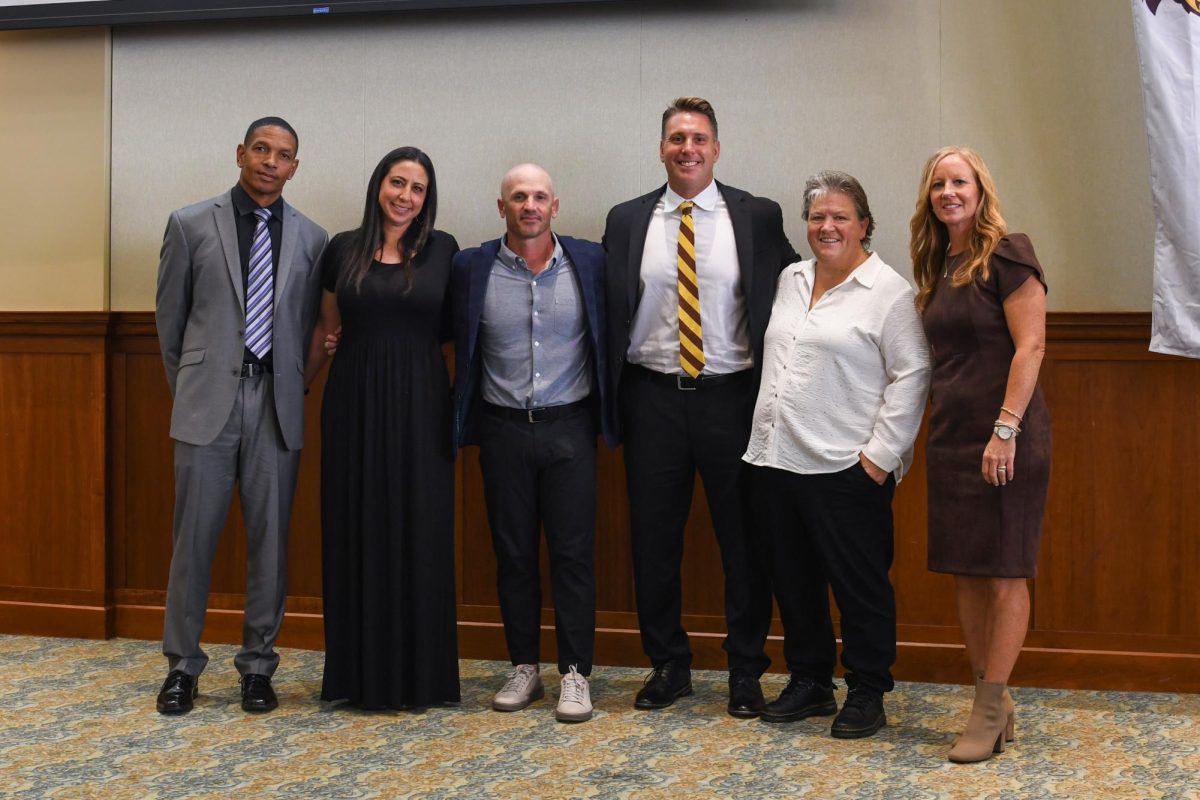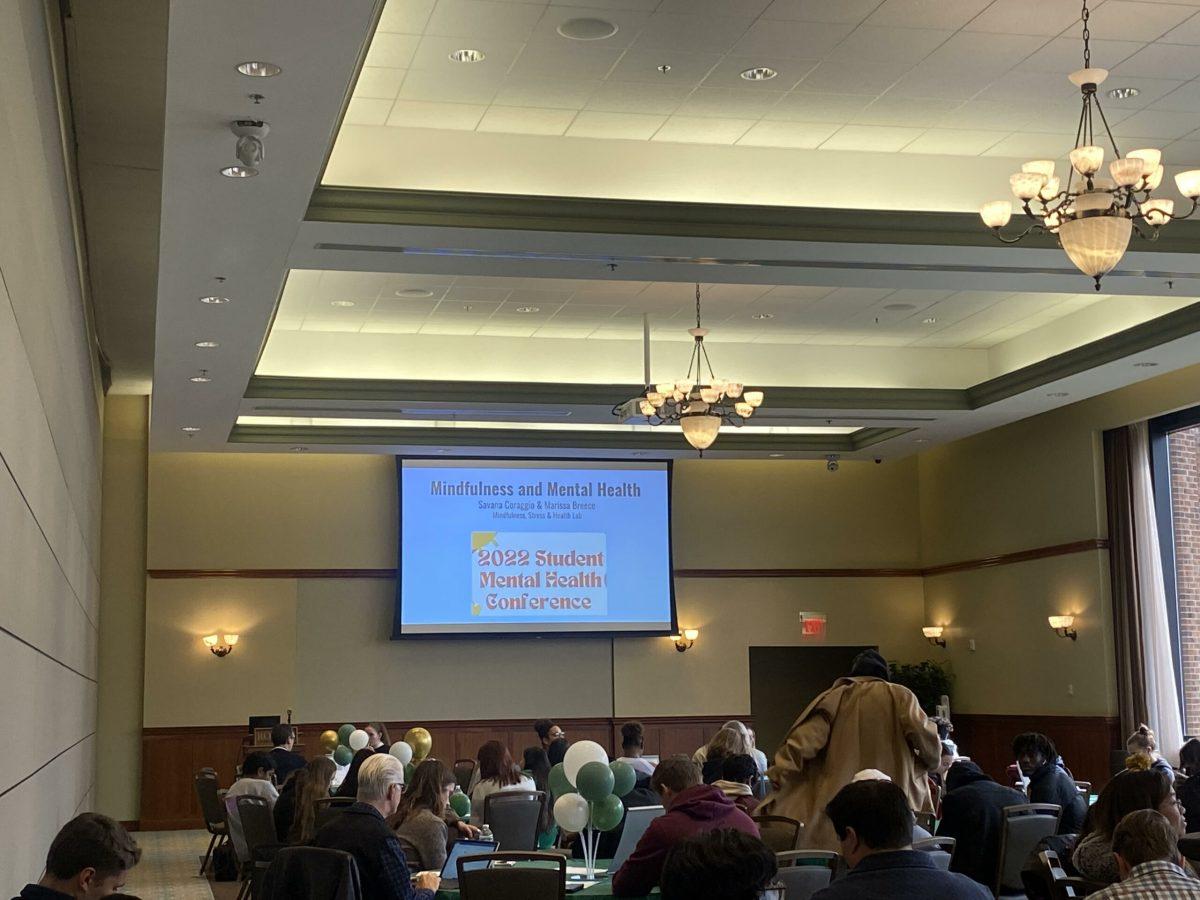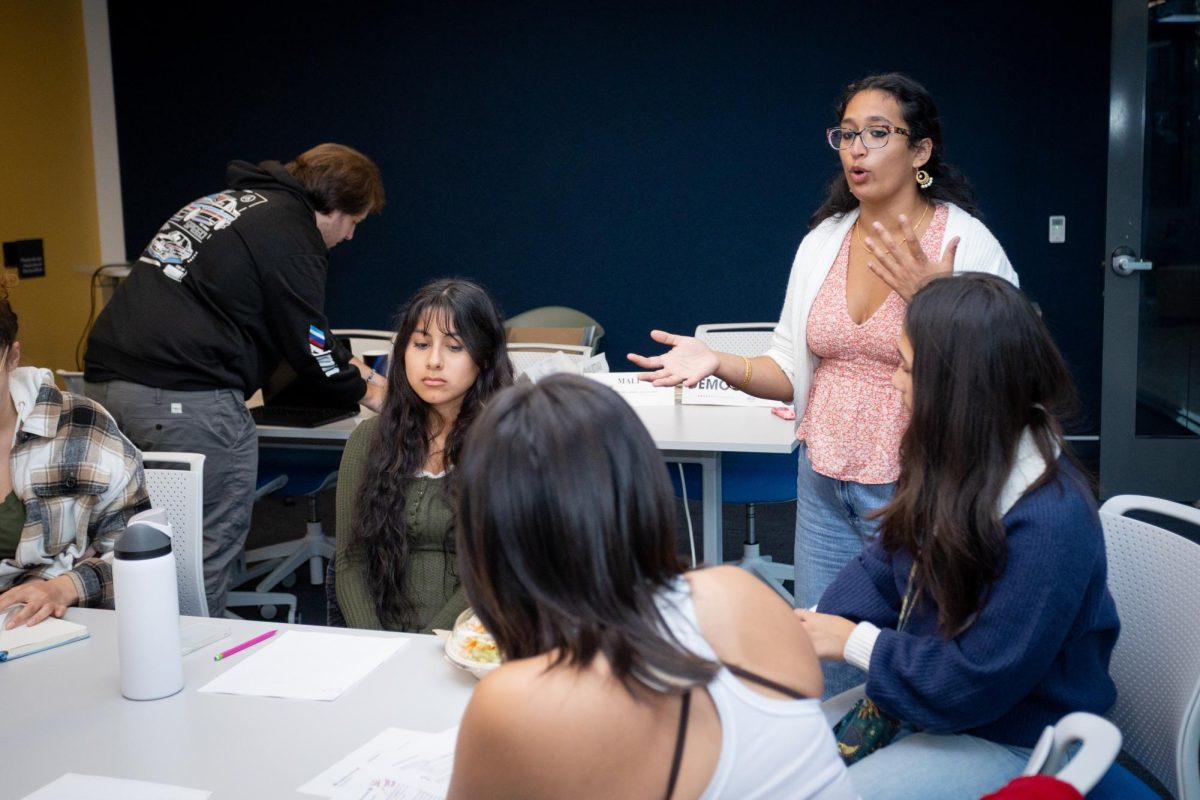Healthy Campus Initiatives (HCI) hosted its fifth annual Student Mental Health Conference on Tuesday, Nov. 15, to bring awareness and advocate techniques to combat mental health issues at Rowan.
Six speakers spoke to those in attendance at the Eynon Ballroom on the second floor of the student center. The venue was split to allow for two speakers to present at the same time and included a free spread of breakfast and lunch cuisine.
HCI grad coordinator Jean Corcione opened the conference by introducing the “variety of challenges that students may see every day handling love, how stress affects [them], practicing mindfulness, and how to cope with the loss of a friend.”
The latter point was the crux of speaker Jason Peng’s presentation. What began as a harmless conversation between Peng and a few friends from his boy scout group resulted in the onset of his severe mental health struggles.
The day following the conversation, Peng’s mother told him that one of those scouts he was with the day before took their own life. His head began to spin.
“How could my friend, who seemed so well on the outside, have such dark thoughts, and deeply seeded emotion on the inside?” Peng said.
This heavily focalized instance of survivor’s guilt plagued Peng when he predicted a similar fate for his older brother, who was showing signs of social anxiety and depression through an unhealthy video game addiction.
The stress Peng felt during this time was immense, and there was little control he had over the situation. He remarked how he always wondered if just asking how his fellow scout’s day was before the fateful day would bring them back to life. Now, he found himself in the same position with his own brother.
“I would go sit outside his door for hours at a time at night, and listen for sound of heavy drops, or smell, or anything that seemed abnormal,” Peng said. “I felt like a sitting duck because I was only able to react to what he was doing instead of acting in the first place.”
Fortunately, his brother pulled through and found his calling as a rescue swimmer for the US Navy, yet that did not resolve Peng’s mental health struggles.
During his first year in college, Peng’s brother informed him there were multiple times he thought about ending his life.
“It came with a wave of relief,” Peng said. “But it also came with an underlying sense of dread. It scared me that his life or his death depended on no more than a dice roll.”
These intrusive thoughts seeped into Peng’s mentality for viewing his own life. He saw things begin to crumble around him educationally and pushed his friends away to all but mute his social life. He came to his own fateful decision.
“I knew the beam in my closet was strong enough,” Peng said.
He began to ponder about those who would miss him and stared at his closet for his final moments.
“And as I sat there in fear, my phone rang. And it was one of my friends,” Peng said. “‘Jason [Peng], we’re hanging out tonight.’ But I was planning on — ‘No, no buts, if you don’t come, I’m finding you and I’m dragging you along. You spend so much time not hanging out with us and now’s the night, now’s the time.’”
The friend on the phone did the very thing Peng wished he could do for his brother and restored just enough faith in Peng to keep pushing forward.
“Although that conversation seems so small, and so unimpactful, and slightly aggressive. I knew for the first time in a long time that I wasn’t alone,” Peng said.
Peng followed up with a call to the National Suicide Prevention Hotline, his first barrier broken due to an unfair preconceived notion of the service. They helped him vent, as Peng described, for the first time in his life. He complimented the comforting voice on the other end, and the many other people trained in suicide prevention.
This experience reshaped Peng’s perspective on his situation.
“I didn’t understand exactly what my friend and my brother went through,” Peng said. “ I did understand the common connection of hopelessness, and that common feeling of pain that we all probably experience.”
Although a loss of a friend or family member can stick with anyone for years, the daily stressors of college life were addressed with a technique to dampen the anxiety that comes with it. Speakers Marissa Breece and Savana Coraggio presented on mindfulness, and how it can improve one’s daily life.
“[Mindfullness] is a way to retrain your mind to change your brain,” Breece said.
To do this, one must do their best to be present, and not focus on anything that happened in the past, or might happen in the future.
A specific level of self-awareness is required, yet mindfulness is “acting on that awareness to better yourself,” said Corragio.
The duo listed the “Four A’s to improving mindfulness” as attention, awareness, acceptance and action.
A proper understanding and utilization of all four can lead to increased memory, attention span, critical awareness and social skills.
There are multiple types of mindfulness meditation, which can help hone the process or reset one’s mind during a high-stress moment.
Their presentation concluded with a five-minute mindful breathing meditation, in which the audience partook.
By scanning a QR code upon walking in the ballroom, guests could submit a survey on the event with a chance to win prizes.
For comments/questions about this story, email [email protected] or tweet @TheWhitOnline.


































































































































































































